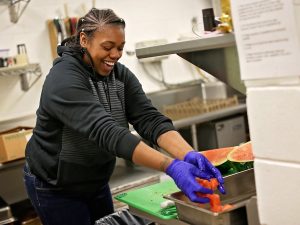Are we wired with a propensity to altruism?
In an experiment with 24 children and 10 different situations, scientists Felix Warneken and Michael Tomasello tested the ability of an 18-month-old to help a non-family adult who was having trouble achieving a goal: an out-of-reach object, access thwarted by a physical obstacle, achieving a wrong but correctable result, and using wrong but correctable means.
The experimenter did not ask for help, rarely made eye contact, and the infants did not receive any benefit—reward or praise—for helping. Analyzed individually, 22 of the 24 infants helped in at least one of the tasks with an average response time of just 5.2 seconds.
Giving is within us.
It appears in various forms—altruism, reciprocity, nurturing, compassion, empathy—and calls for recognition, a desire to alleviate suffering, and then the action of caring for another at a personal cost with no expectation of return benefit.
While giving is intrinsic to us as people, it’s also inherent to The Salvation Army. Yet, it’s not about charity in the common sense. Dr. Erin Dulfault-Hunter, assistant professor of Christian Ethics at Fuller Theological Seminary, examines the concept of charity on page 28 and how we, as Christians, join our lives to the poor. She determines the root of charity, and what it should remind us of.
Studies of generosity have shown that such action creates positive physical responses within us, including improved immune function and increased stress resilience. Dr. Emma Seppala, associate director of the Center for Compassion and Altruism Research and Education at Stanford University, details much of this research on page 24, asserting that the secret to lasting happiness does not lie in any goods, relationships or achievements, but rather in what we can give.
In this issue, Caring explores giving—its traditions, motivations and expressions—for as Seppala writes, it’s compassion that makes you happy, healthy and wise.
The generous will prosper; those who refresh others will themselves be refreshed (Prov. 11:25).












